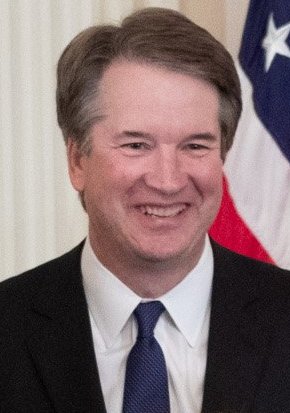
By a 50-48 majority, the U.S. Senate voted on Saturday to confirm Brett Kavanaugh, a Yale Law School graduate and a D.C. Circuit Court of Appeals judge of 12 years, to the Supreme Court of the United States. Kavanaugh was sworn in that evening and has already assumed his place on the bench. He is President Donald Trump’s second appointee to the Court.
Kavanaugh’s approval was fraught with controversy. Over the course of his confirmation hearings, three women brought forth allegations of sexual misconduct from Kavanaugh’s high school and college years, throwing his confirmation, character, and career into question.
The accusations prompted Kavanaugh to share his side of the story during an interview with Fox News, an unprecedented move for a judicial appointee. Testimonies before the U.S. Senate Judiciary Committee from Kavanaugh’s primary accuser, Christine Blasey Ford, and Kavanaugh himself were televised nationally. The saga culminated in an FBI investigation into the claims, which proved to be a deciding factor for several senators.
As the hearings unfolded, Professor of History Brad Birzer said he doubted the Senate would confirm Kavanaugh.
“After I watched Ford testify, I thought he was done,” he said. “And then when he testified, I thought he saved it. He did a great job in his defense that Thursday afternoon. If you can’t be angry about having your reputation demolished, then you can’t be angry about anything. That’s the most personal thing there is. His anger was totally justified.”
The allegations follow the rise of the #MeToo movement, which has spotlighted sexual abuse and called out prominent figures for inappropriate conduct.
Deon Claiborne, a lecturer of sociology, said that while the hearings sparked drama, they also helped to continue drawing attention to an issue embedded in American culture.
“If this nomination process points to anything, it’s the need to have real, honest conversations about sexual assault in this country because it happens and it’s underreported,” she said. “Whether it’s framed as the #MeToo movement or just a groundswell of women who want justice for the harassment and assault that they face in this country, that’s a force to be reckoned with.”
On the other hand, Lecturer of History Dedra Birzer warned that the Kavanaugh hearings highlight the pitfalls of #MeToo. She said the “believe all women” mantra disregards due process, which is something that particularly concerns her as a mother of boys. She added that women have a unique role in defending the reputation and character of the men in their lives.
“The anti-Kavanaugh bloc asks, ‘What if Ford was your daughter?’’ Dedra Birzer said. “But the other side of that is, ‘What if Kavanaugh is your son? Or your husband? Or your dad?’ Imagine you’re watching those testimonies and seeing the pain in his face. The left said from the beginning they’d do whatever it takes to take him down and they did. They let no strand of decency get in their way.”
With a generation of Supreme Court rulings at stake, contention was inevitable. The tensions quickly gave way to an outcry across the media and internet, violent protests, and even death threats to Kavanaugh, Ford, and senators. Assistant Professor of Politics Adam Carrington said the sheer nastiness of the ordeal surpassed even the hearings of Robert Bork, an appointee of former president Ronald Reagan, and Clarence Thomas, whom former President George H.W. Bush appointed.
“I think the division in our country is deeper now than it was back then, but I also think that social media ratchets up the hatred and vitriol as well,” he said. “If you read the Federalist Papers, especially those by Madison and Hamilton, they want the people to rule and to rule reasonably. And that doesn’t mean you can’t be passionate and be spirited, but it does mean that reason is ruling and spiritedness is in its service.”
Already, some on the left have called for Kavanaugh’s impeachment, but Carrington dismisses this as mere rhetoric.
“There is basically zero chance that he will be removed from office,” he said.
Instead of seeking Kavanaugh’s impeachment, Carrington suggested that a more prudent route would be to return to the Supreme Court’s original intent rather than viewing it as a political tool.
“Some people are arguing that Kavanaugh will buckle down and be even more Republican or conservative while others say that he might try to ingratiate himself to his opponents by becoming more moderate,” Carrington said. “My hope is that he does neither. I hope he rules on the basis of the law and that he, like Federalist 78 says, exercises ‘neither force nor will but merely judgement.’”
Brad Birzer offered a hopeful perspective.
“I think a lot of times, because we haven’t seen a trend before in our lifetimes, we tend to think it’s going to keep going this way,” he said. “But if we look at American history, we’ve had these kinds of radical moments that we’ve gotten out of. Things may keep declining in terms of our social relations with one another, but history shows that we get out of things. Americans come to their senses.”

